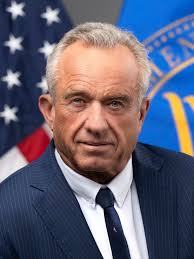
Introduction
Robert F. Kennedy Jr., commonly known as RFK Jr., has emerged as a significant figure in American politics, especially in the context of the 2024 presidential election. As the son of iconic politician Robert F. Kennedy and nephew of former President John F. Kennedy, he carries a legacy that influences his political efforts. With a history marked by activism and controversy, RFK Jr. has garnered both supporters and critics, making his candidacy a pivotal topic in the current political landscape.
Political Campaign and Stance
In April 2023, RFK Jr. announced his candidacy for President as a Democrat, positioning himself as a candidate focused on issues like public health, environmental protection, and civil liberties. His anti-establishment rhetoric has resonated with many voters who feel disillusioned by mainstream politics. RFK Jr. has been particularly vocal against vaccine mandates and pharmaceutical companies, leveraging his public health background as an environmental lawyer and activist to appeal to a broad audience.
His campaign also emphasizes the need for restoring trust in government and the media, a theme that has gained traction amid ongoing debates about misinformation and governmental transparency. By confronting big issues with a blend of traditional liberalism and libertarianism, he aims to attract a diverse coalition of voters who may feel alienated by both major political parties.
Controversies and Challenges
While his candidacy has energized some, it has also faced significant pushback. Critics point to his controversial views, particularly regarding vaccines, which have sparked debates about public health measures during a time when misinformation has been rampant. His stance has led to widespread scrutiny from the media, political opponents, and public health experts who argue that his position undermines scientific consensus and poses public health risks.
Additionally, his connections to the Kennedy legacy often come with expectations and scrutiny, as some voters look for indications of how closely he aligns with past family values and approaches. Navigating this legacy while establishing his own political identity is a delicate balance that will likely influence the trajectory of his campaign.
Conclusion
RFK Jr.’s entry into the political arena reflects a growing demand for alternatives in the wake of polarized political sentiments in the United States. Whether he can sustain momentum and garner enough support to make a significant impact in the 2024 election remains to be seen. However, his campaign has already sparked important discussions about accountability, public health, and the future direction of the Democratic Party. Voters are encouraged to consider his proposals and the implications of his potential presidency, as RFK Jr. represents not just a continuation of a storied legacy but also a new voice amidst an evolving political landscape.



